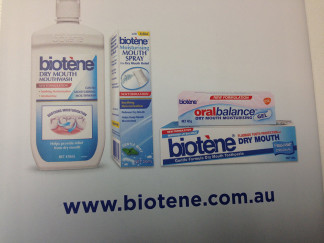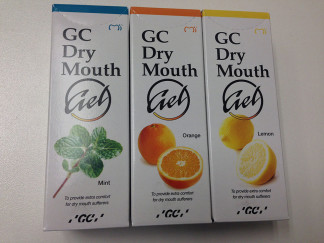Need an Appointment?
If you'd like to book an appointment with the dentist at Seymour Dental then contact us, or call us in Dulwich Hill, Sydney on (02) 9564 2397.
So how do we treat dry mouth and prevent the uncomfortable symptoms and higher risk of decay that it can lead to?
- Address the cause of dry mouth
- If you are taking more than 2 medications regularly this can increase your risk of dry mouth as they are common side effects of certain medications. Taking 3-4 medications increases the risk of dry mouth by up to 50% and taking 6-7 medications increases this up to 65%4, 5. You may consider having a chat to your GP to review your use of medications so that it is optimal.
- Dry mouth can be a sign of underlying medical conditions which need to be investigated and treated, particularly Sjogren’s syndrome6 and diabetes7. Even mouth breathing can be a sign that you have a chronically blocked nose and this can cause dry mouth.
- Maintain hydration
- Keep hydrated by drinking lots of tap water throughout the day. Most GP’s recommend 2 litres a day as a guide. It is important this water has fluoride to give your teeth maximum protection against decay as bottled water often does not contain any fluoride.
- Avoid foods and drinks that tend to dehydrate your body including anything with caffeine (coffee, tea) or alcohol, as well as smoking.
- Relieve symptoms by replacing lost saliva
- There are products available to artificially moisten the mouth such as mouth sprays, gels, washes and toothpastes. Brands sold on the Australian market include Aquae, Biotene , GC dry mouth gel & others. Speak to us to find out which products might suit you!
- For patients who cannot avoid situations where dry mouth is an inevitable consequence, such as those who have been treated with chemotherapy/radiotherapy, your GP can even prescribe medications that stimulate the production of more saliva in the mouth3.
So don’t put it off any longer and don’t be shy. Come in to Seymour Dental and we can have a chat to you about your dry mouth, and help create a treatment plan customised to suit your needs and keep your dentally fit.
—
3. Gupta N et al. Radiation-induced dental caries, prevention and treatment. Natl J Maxillofac Surg 2015;6:160-66
4. Nederfors T et al. Prevalence of perceived symnptoms of dry mouth in an adult Swedish population – relation to age, sex and pharmacotherapy. Community Dent Oral Epidemiol 1997;25:211-6
5. Sreebny L et al. Xerostomia. Part II: Relationship to nonoral symptoms, drugs and diseases. Oral Surg Oral Med Oral Pathol 1989;68:419-27
6. Riega-Torres J. Sjogren’s syndrome: a review of the subjecdt and saliva as a diagnostic method. Gac Med Mex 2016;152:371-80
7. Lopez-Pintor R. Xerostomia, hyposalivation and salivary flow in diabetes patients. J Diabetes Res 2016;2016: 4372852
 479 Marrickville Road
479 Marrickville Road
